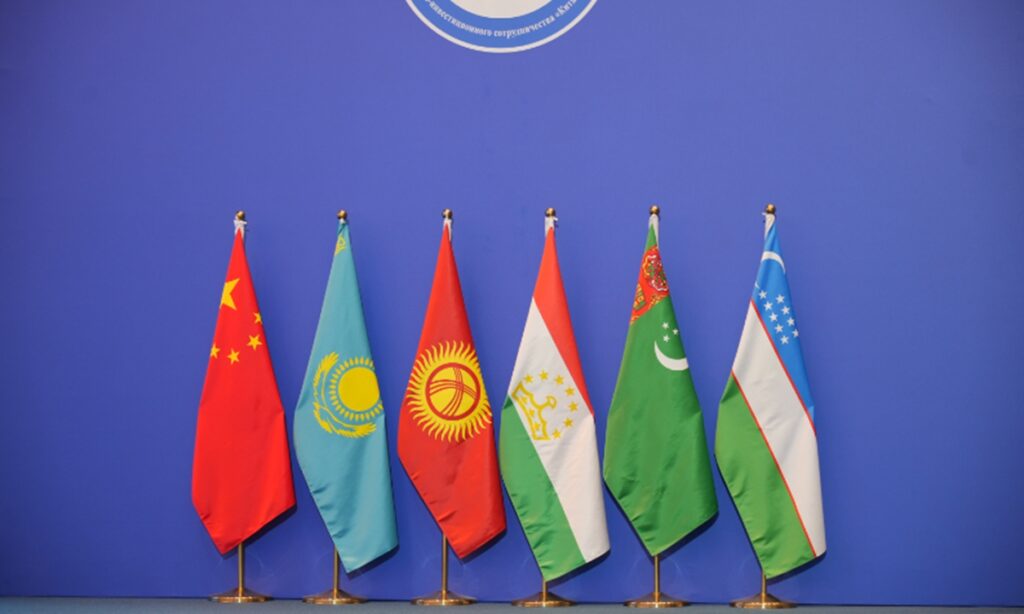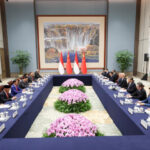Officials and delegates from Central Asian countries eyeing to expand cooperation with China beyond traditional sectors and deepen collaboration in areas such as green energy, people to people exchange, as well as digital poverty relief.
Uzbekistan attaches great importance to strengthening cooperation with China and recognizes China as a key strategic partner. The cooperation between the two sides is highly dynamic, Obid Khakimov, director of Center for Economic Research and Reform of Uzbekistan, said at the China-Central Asia Development Knowledge Symposium held in Beijing on Thursday.
Khakimov said that China and Central Asia need to achieve the development of green energy, especially in the face of climate change challenges, which is even more important. China is highly advanced in areas such as solar energy, wind energy, and hydropower, and we hope to establish pragmatic cooperation with China in these fields, said Khakimov.
Uzbekistan has set a goal of achieving 25 percent of total electricity generation from renewable energy sources by 2030 and achieve carbon neutrality by 2050. Eldor Tulyakov, executive director of Development Strategy Center of Uzbekistan said that currently, the main source of electricity generation in Uzbekistan is natural gas, and the country aims to gradually reduce our dependence on the resource from 76 percent to 50 percent. We are collaborating with the Chinese government to promote cooperation in renewable energy and produce related products, such as manufacturing electric vehicles in Uzbekistan, said Tulyakov.
Participating in the symposium are officials and delegates from Central Asian countries, including Akunaly Dosaliev, Minister of Transport and Communications from Kyrgyzstan.
Dosaliev said the construction China-Kyrgyzstan-Uzbekistan railway is moving forward and the Kyrgyzstan is exploring cooperation potential with China on transportation in full swing. He said that Kyrgyzstan and China will continue to cooperate and interact to further develop railway transportation corridor between Tashkent and Osh, as well as to attract cooperation with Russia.
Abdukhalil Ghafurzoda, rector of the Academy of the Public Administration under the President of Tajikistan said that Tajikistan is very interested in expanding cooperation with Chinese educational and research institutions for several reasons, including that diplomas issued by Chinese universities are highly regarded, and also China’s heavy investment in the country.
Ghafurzoda cited the Luban Workshop as an example. He said the workshop has two centers, one for geodesy and intelligent mapping practice training, and the other for green energy.
The first cohort of 50 students will study modern production, automation, energy, construction, transportation and communication, IT, technology, and traditional Chinese medicine. Ghafurzoda said Luban Workshop in Tajikistan is the first pilot project in Central Asia, and it has great prospects for promotion in the region. Tajikistan is interested in increasing the number of Luban Workshops, he noted.
In addition, Ghafurzoda said China had replaced the US in terms of international patent applications, and the number of unicorn companies in China has grown rapidly. This clearly indicates that in the Fourth Industrial Revolution, China is keeping pace with industrialized countries and has even taken a leading position in certain fields. “Having such a successful neighbor and not learning from it is like starving in a wheat field,” said Ghafurzoda.
Speaking at the symposium, Huang Jingjing, Deputy Director One of the CAREC Institute said although China and Central Asian countries differ in terms of national conditions and systems, China’s digital poverty relief program has certain reference value for alleviating the wealth gap for those countries.
Through the development of the digital industry, surplus labor can be effectively transferred, new employment opportunities can be created, and the development of new employment channels can be promoted, Huang said. She noted that establishing a digital long-term poverty monitoring mechanism and a regulatory framework for digital data can effectively support digital poverty alleviation efforts.
We hope to strengthen multilateral knowledge sharing to further promote and develop digital poverty alleviation with countries in the region, Huang remarked.
During the China-Central Asia summit held in Xi’an in May, leaders from China and all five Central Asia countries agreed to further expanding cooperation in the field of traditional energy sources, including oil, natural gas and coal; and strengthening cooperation in the field of hydropower, solar, wind energy and other renewable sources, deepening cooperation on the peaceful use of nuclear energy, implementing projects using green technologies and clean energy sources, implementing the concept of innovative, coordinated, green, open and joint development.
They also confirmed their readiness to strengthen cultural and humanitarian cooperation in such areas as education, science, culture, tourism, archaeology, archives, physical culture and sports, media and think tanks, promote interaction and establish twinning and partnerships between provinces and regions, expand youth exchange mechanisms through new forms of activities, develop cooperation in conducting joint archaeological expeditions, preserving and restoring cultural heritage, museum exchanges, recovering and returning lost and stolen cultural assets.
(Global Times)




